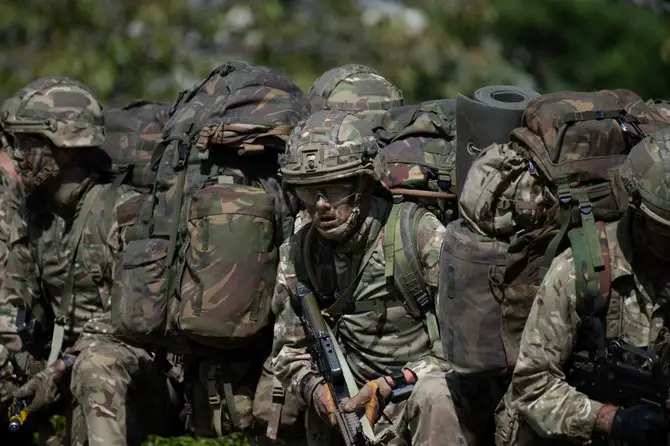The British Ministry of Defence has announced that it plans to invest 238 billion euros ($270 billion) in state-of-the-art military equipment and necessary support services from 2021 to 2031.
A recently published defense equipment plan revealed that the British Army would receive 41.3 billion euros ($46.8 billion) in new equipment over the next 10 years. This includes several large projects still in development and may incorporate further changes.
The multibillion-dollar budget allocation will be used to improve the service by investing in major initiatives such as upgrading combat vehicles and strengthening ground-based air defenses.
The ministry will also purchase AH-64 Apache attack helicopters and bolster intelligence, surveillance, and reconnaissance.
The British Navy will receive 38.1 billion euros ($43.2 billion) to improve the naval fleet. The budget is 8 billion euros ($9 billion) higher than the original budget allotted for the service.
“We have entered a new ‘competitive age’ of resurgent authoritarian states and diversifying threats,” UK Secretary of State for Defence Ben Wallace explained.
“As the threat changes, we must adapt, remaining clear-eyed about what capabilities we need, retire those that are less relevant, and invest in areas that will give us a strategic advantage.”
Additional Allocations
Apart from the army and navy, the Royal Air Force will receive 36.2 billion euros ($41 billion) in the decade-long defense plan. The investment is expected to help the service become one of the most advanced in the world.
Additionally, the UK Strategic Command, the Defence Nuclear Organisation, and the Strategic and Combat Air Program have been allocated 35 billion euros ($39.7 billion), 58.1 billion euros ($58.8 billion), and 21.5 billion euros ($24.4 billion), respectively.
The money will be used to improve the country’s digital and cyber capabilities, modernize its nuclear arsenal, and upgrade its missiles and sensors.
“We had seen the consequences of shortfalls in funding, with last year’s report showing a 7.3-billion-euro shortfall over ten years,” Wallace said.
“The reset has allowed us to fund that shortfall, but we have also made the significant investments required to address new threats and to ensure that our armed forces remain capable and credible.”












